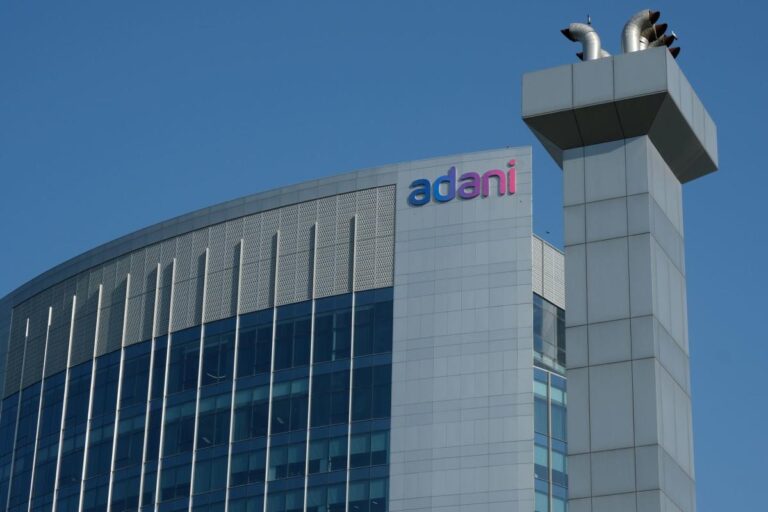
[ad_1]
(Bloomberg) — The crisis of confidence plaguing Gautam Adani is deepening, with the stock rout triggered by Hindenburg Research’s fraud allegations erasing a third of the market value in his group’s companies despite the completion of a key share sale.
Most Read from Bloomberg
The selloff accelerated in afternoon trading, with all of the 10 stocks tied to the billionaire slumping. Adani Enterprises Ltd., the flagship firm that completed a $2.5 billion follow-on stock sale Tuesday, lost as much as 15%.
The turmoil indicates heightened concern over the debt load incurred by the conglomerate after a rapid expansion into industries from green energy to media, with short seller Hindenburg accusing it of inflating revenue. With the selloff passing $80 billion across the group’s stocks, banks have asked for more stock collateral on a loan, Bloomberg reported this week.
“It is a wait-and-watch situation. They have obviously found the investors but concerns of Hindenburg Research have not been addressed,” said Brian Freitas, an analyst at Smartkarma.
The offering by Adani Enterprises was India’s largest follow-on share sale, and was fully subscribed on the final day, aided by a last-minute surge in demand from institutional investors. At least two of India’s biggest business families, including tycoons Sajjan Jindal and Sunil Mittal, are also said to have participated in it, in a sign of solidarity with Adani.
Interest from retail investors — who Adani was hoping to attract — was notably weak. The firm is expected to announce the final price for its offering later Wednesday. The offering attracted overall bids for 1.12 times the amount of shares available, less than six out of seven jumbo-sized sales analyzed by Bloomberg.
Adani Enterprises sank to as low as 2,527.85 rupees on Wednesday, 19% below the lower end of the offer price range of 3,112-3,276 rupees.
The worsening selloff in Adani weighed on India’s broader benchmarks, with the Nifty 50 erasing budget-fueled gain of as much as 1.8%. Life Insurance Corporation of India, an Adani shareholder and an investor in the share sale, plunged nearly 6%.
What’s Next?
The storm engulfing Asia’s richest man has become a test case for India as well, with Hindenburg’s allegations raising questions over the country’s corporate governance, while Adani himself has called the report an attack on India itself. It has turned the conglomerate into a drag on the nation’s stock markets, an abrupt reversal from last year when Adani-linked stocks helped drive a world-beating rally.
Market watchers see the fight between Adani and Hindenburg continuing, after the two traded barbs earlier in the week. The Indian conglomerate has called Hindenburg’s report “bogus,” threatened legal action and said it was “a calculated securities fraud” in its 413-page rebuttal, which the short seller said ignored all its key allegations and was “obfuscated by nationalism.”
The fundraising success appears to have offered immediate relief to the credit market, with most of the Adani group’s dollar bonds extending gains into a second day. The flagship firm’s latest stock offering is partly intended to help repay debt.
That said, if Adani’s stock prices decline further, the pressure will grow on the conglomerate’s debt using shares as collateral: Adani on Friday added about $300 million worth of shares for a loan made by a group of banks including Barclays Plc, according to people familiar with the matter.
Separately, Credit Suisse Group AG has stopped accepting bonds of Adani’s group of companies as collateral for margin loans to its private banking clients.
“The important thing to watch now post allotment is what level of holding period the investors are willing to have on these shares,” said Sameer Kalra, founder of Target Investing in Mumbai. “Having a few investors getting most of the allotment, there is a risk of some portion being sold immediately.”
(Updates prices)
Most Read from Bloomberg Businessweek
©2023 Bloomberg L.P.
[ad_2]